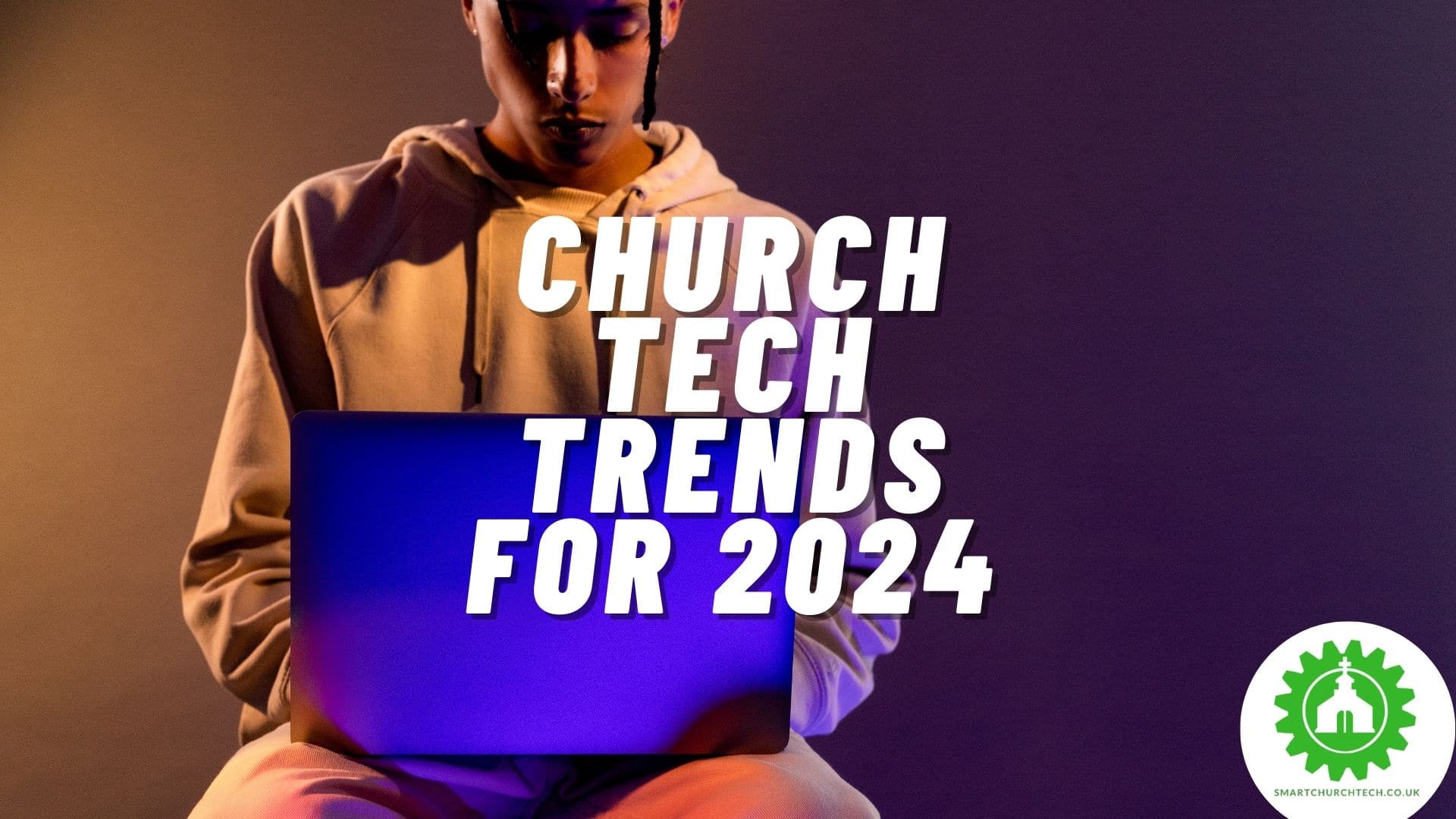In the ever-evolving landscape of technology, its impact on society and industries is undeniable. Over the past decade, we’ve witnessed a digital revolution that has reshaped the way we live, work, and interact. As we stand at the threshold of 2024, this wave of innovation continues, presenting both opportunities and challenges for churches striving to adapt wisely and discerningly.
Expanding Use of Artificial Intelligence
Artificial Intelligence (AI) is not just a term from science fiction but a transformative force making its way into the fabric of church operations. Chatbots and virtual assistants, for instance, are becoming invaluable tools for automating responses to common queries, enhancing efficiency in communication.
AI also lends its prowess to data analysis, helping churches better understand their members and communities, thereby improving outreach efforts. However, this technological boon comes with its own set of challenges, including concerns about privacy, potential biases in algorithms, and the necessity for responsible AI practices.
Adoption of Virtual and Augmented Reality
As we move forward, the integration of Virtual Reality (VR) and Augmented Reality (AR) into the church experience is gaining momentum. Imagine immersive Bible stories and teaching tools powered by AR/VR, bringing scripture to life in ways never before possible.
Virtual faith communities, church services, and events are on the rise, offering a means to connect with congregants regardless of physical location. While this presents an incredible opportunity to increase accessibility, there is also the challenge of navigating a digital Sabbath, ensuring that technology enhances rather than detracts from spiritual experiences.
Live-Streaming and New Media Best Practices
In an era where attention spans are short and digital content is king, churches are capitalizing on live-streaming and new media. This trend enables them to reach wider audiences through live-streamed services, podcasts, and engaging short-form content on social media.
However, this shift requires careful consideration of ethical practices in digital media, including the need for clear policies and training around content creation and dissemination.
It may become essential for churches to have a presence on platforms like TikTok to reach younger generations, but that also means understanding the platform’s algorithms and potential pitfalls.
Tech for Deeper Community Connections
The rise of church apps and web portals is facilitating more seamless connections within congregations. These tools integrate messaging, group features, and giving platforms, creating a digital ecosystem for community engagement.
Yet, as we leverage technology to foster connections, there’s a vital need to balance it with genuine, personal interactions, avoiding over-reliance on digital platforms to nurture relationships.
Navigating the Future with Wisdom
In this era of rapid technological advancement, churches have a unique opportunity to leverage these tools for kingdom purposes. However, this journey demands wisdom, study, and discernment. As we enter 2024, let us set a vision to adapt to emerging technologies, ensuring that our adoption aligns with ethical practices and enhances, rather than replaces, the spiritual fabric of our communities.
May technology be a tool that amplifies the timeless message of hope and love, connecting hearts and souls in the digital age.

